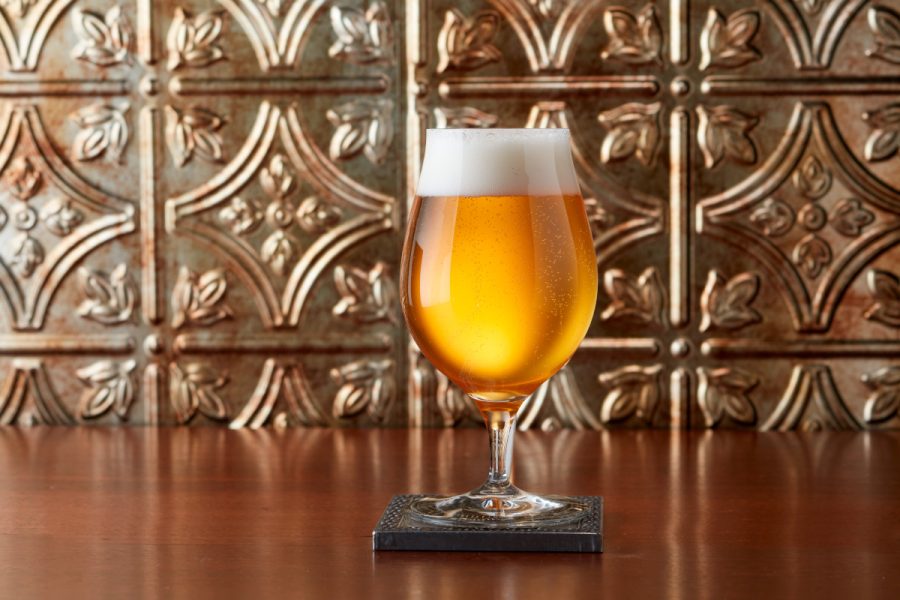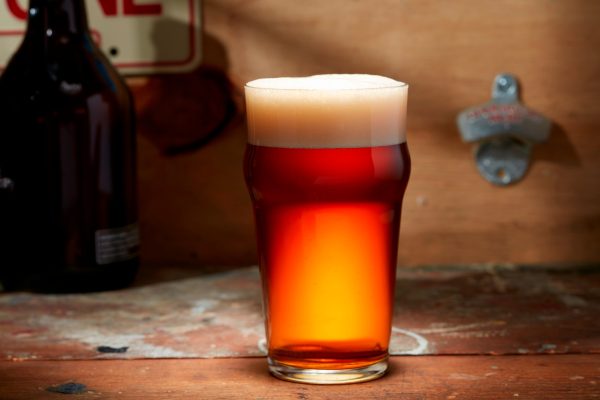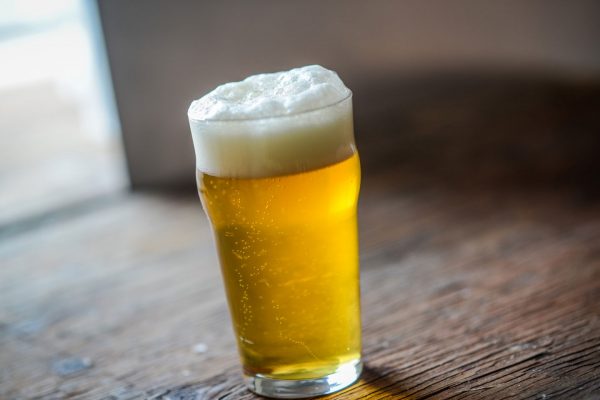
Freya’s Locks was originally featured in the article “Partial Mashing to the Rescue” (July/August 2023 Zymurgy Magazine).
This partial mash blonde ale recipe from Chris Colby is lighter in color and drier than could be made with malt extract alone. The beer is not meant to be the driest or lightest possible, but simply on that end of the spectrum. (For an even drier, lighter beer, swap sucrose for some of the malt extract.) Use fresh malts and malt extract—and pay extra attention to cleaning and sanitation—to get the best bready malt character balanced by the hop aromatics. A superior beer to enjoy while grilling and clicking your tongs.
Freya’s Locks was originally featured in the article “Partial Mashing to the Rescue” (July/August 2023 Zymurgy Magazine).
This partial mash blonde ale recipe from Chris Colby is lighter in color and drier than could be made with malt extract alone. The beer is not meant to be the driest or lightest possible, but simply on that end of the spectrum. (For an even drier, lighter beer, swap sucrose for some of the malt extract.) Use fresh malts and malt extract—and pay extra attention to cleaning and sanitation—to get the best bready malt character balanced by the hop aromatics. A superior beer to enjoy while grilling and clicking your tongs.
Ingredients:
- MALTS
- 2.9 lb. (1.3 kg) Pilsner malt, 2°L
- 0.75 lb. (340 g) Vienna malt, 3°L
- 0.33 lb. (150 g) light crystal or “Cara” malt, 10°L or lighter
- 3 lb. (1.4 kg) light liquid malt extract
- HOPS
- 0.33 oz. (9.4 g) Summit, 17% a.a. @ 60 min
- 0.5 oz. (14 g) Willamette, 5% a.a. @ 0 min
- YEAST
- 2 qt. (2 L) yeast starter neutral, attenuative ale yeast (any “Chico” strain should work great)
- WATER
- Carbon filter and adjust with distilled water and CaCl₂ as needed for less than 50 ppm carbonates and 100–150 ppm Ca.
- ADDITIONAL ITEMS
- 0.5 tsp. Irish moss (or other fining agent) @ 20 min
- 0.5 tsp. calcium chloride (optional)
- 0.28 oz. (8 g) Polyclar AT (PVPP, optional)
- 4.75 oz. (135 g) corn sugar for priming bottles to 2.6 vol. (5.2 g/L) CO2
Specifications:
Yield: 5 US gal. (18.9 L)
Original Gravity: 1.044 (11°P)
Final Gravity: 1.010 (2.6°P)
ABV: 4.5%
IBU: 21
SRM: 6-7
Directions:
Make yeast starter 2–3 days ahead of time. In your brew pot, heat 5.5 qt. (5.2 L) brewing liquor to 161°F (72°C). Place crushed grains in a large steeping bag and submerge in brew pot. Mash at 150°F (66°C) for 45 minutes, stirring and heating briefly every 10 minutes to maintain the mash temperature. In a separate pot, heat 5 qt. (4.7 L) water to 170°F (77°C).
When the mash is done, do not conduct a mash-out step. Lift bag above brew pot and let it drip until you can move the bag of grain to a 2-gallon beverage cooler without splattering too much. Scoop or pour the wort from the brew pot into the cooler. Recirculate the wort until it clears a bit, then run off.
Sparge steadily over 60 minutes. To do so, collect about a cup (250 mL) of wort from the cooler every 90 seconds, then add the same volume of hot water to the top of the grain bed. Once you have collected about 10 qt. (9.5 L), add roughly half of the malt extract to your brew pot, and let the wort dissolve it. Once the extract is completely dissolved, hold the temperature near 150°F (66°C) as you collect the rest of the wort. Add about 2 qt. (1.9 L) of water to the brew pot to yield about 3.5 gal. (13.3 L) when you’re done collecting the wort.
Bring wort to a boil. If hot break does not appear big and fluffy after 5 minutes, add 0.5 tsp. calcium chloride. Add the bittering hops and boil wort for an additional 55 minutes. Add Irish moss with 20 minutes left in the boil. Don’t let boil volume dip below 3 gal. (11.4 L) during boil. Add boiling water to top up, if needed. Stir in the remaining malt extract in the last 10 minutes of the boil.
Chill wort to 68°F (20°C), rack wort to a fermenter, and add water to yield about 5 gal. (18.9 L). Aerate the wort thoroughly and pitch sediment from the decanted yeast starter. Ferment at 68°F (20°C). After fermentation stops, rack to a secondary fermenter and hold for three days. Fine with PVPP for clarity, if desired (see below), before racking beer to keg or bottling bucket. Carbonate to 2.6 vol. (5.2 g/L) of CO₂.
FOR CLEARER BEER (OPTIONAL):
After fermentation and conditioning, dissolve 8 g PVPP in roughly 2 fl. oz. (60 mL) of hot water and gently stir into top layer of beer. Let settle overnight, then rack beer to keg or bottling bucket.





Share Post